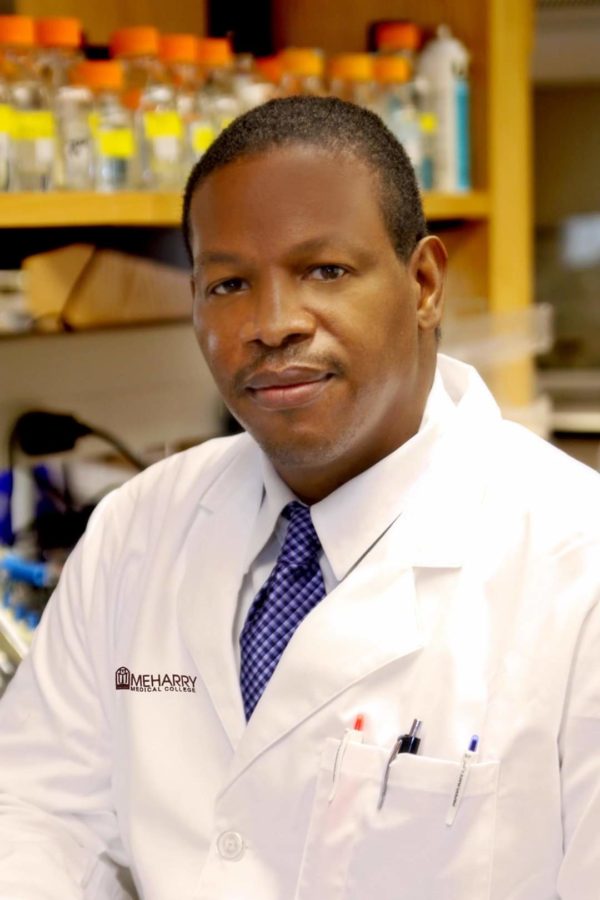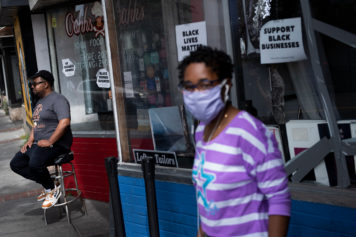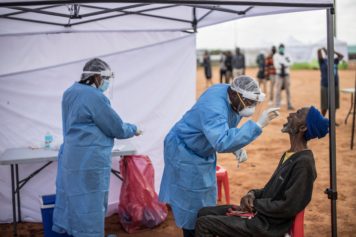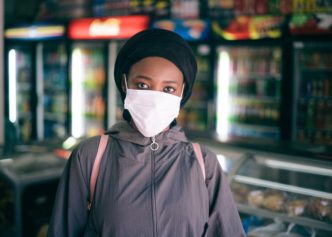A scientist says he is two weeks away from beginning tests with an antiviral drug to fight COVID-19.
As the virus rapidly spreads within Black communities throughout the country, Dr. Donald Alcendor, an associate professor of microbiology and immunology at the Nashville, Tennessee, HBCU Meharry Medical College and an adjunct associate professor at Vanderbilt University Medical Center, says the fight is personal.

Statistics from states such as Michigan, Virginia, Illinois, Minnesota, North Carolina, Arkansas and Louisiana provided evidence of the novel virus affecting Black communities at a disproportionate rate. The racial breakdown from the population in the CDC report was 59 percent white, 14 percent Latino and 18 percent Black. However, the report found 45 percent of hospitalized patients were white, 8 percent were Latino and 33 percent were Black.
“And [that disparity] makes us all at Meharry compelled to do our best,” the scientist told NBC News.
With social distancing and stay-at-home orders in place, Alcendor, who got his bachelor’s in microbiology from Southern University and Ph.D. in molecular virology from the University of California at Davis, has been able to make the antiviral drug his main focus in the global race to find a treatment.
Since the fall of 2019 pharmaceutical companies and countless scientists have been studying the virus, and since January they have been scuttling to create a drug to offset the pandemic.
In Bethesda, Maryland, Dr. Kizzmekia S. Corbett, a viral immunologist working with the National Institute of Allergy and Infectious Diseases, and her team have been front-runners in the development of a vaccine.
But Alcendor, under the leadership of Meharry President James E.K. Hildreth, has taken on the task of creating a therapeutic drug. His success in researching Zika virus antivirals lends him confidence in the race to find a treatment to drastically lower the death rate caused by the virus.
Alcendor, along with Meharry Drs. Waldemar Popik and Atanu K. Khatua, were in their labs in 2016 as the Zika virus outbreak reached its peak. The group of scientists found a way to prevent replication of the genetic material from the Zika virus once it entered human cells. The team was successful in reducing the virus’ replication by 95 percent using their drug candidate. The coronavirus has a similar genetic disposition to the Zika virus, Dr. Hildreth says.
“The process is understanding how the virus gets into your system, where it goes and how it infects,” Alcendor said to NBC this week about the development of an antiviral drug. “The struggle is that it is a single strand that produces tremendous inflammation. The patient will feel like he’s drowning.”
Though a vaccine to prevent the virus is expected in about 18 months, Alcendor and other scientists hope to use an antiviral drug could be used to treat patients once they are infected and give their immune systems a fighting chance to work.
“You may be able to somewhat rebound in an early stage as opposed to going downhill, where you go into respiratory distress and subsequently multi-organ failure,” Alcendor told local TV station WKRN this week.
After the antiviral treatment is created Alcendor plans to move into clinical trials. If successful the treatment would then move to be approved by the Food and Drug Administration within a few months.
The name of the drug Alcendor is working on? MRCV-19, which is short for Meharry’s Response to COVID-19, an appropriate name for a project born out of a school and scientist’s desire to respond to a crisis.


